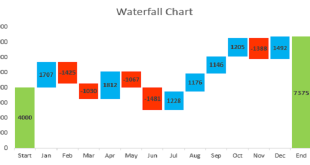
In the data-driven world, the significance of data entry work is profound. The role of data entry professionals serves as a bridge that connects raw data to actionable data sets. The primary responsibilities of data entry professionals are centered around the entering, updating, and maintenance of data across various industries, such as healthcare, finance, retail, and technology. These specialists ensure that the information is not only accurate but also easily accessible, thereby contributing to the effective functioning of data systems. This article will provide a comprehensive overview of skills requirements, salary details based on experience level, and tips on how to find data entry jobs.
What is Data Entry?
Data entry is vital to entering information into electronic formats using word processing or data processing software hosted on a computer and its data entry tools. This process is crucial for organizations as it helps in collecting, updating, and maintaining information in digital databases.
Data entry specialists work with various types of data, including text, numbers, and sometimes even images and videos, depending on the company’s needs. Their work supports critical functions such as accounting, marketing, and customer management. The accuracy and organization of the data can significantly impact a business’s decision-making processes, making data entry a key component in the operational success of companies across multiple industries.
Top 10+ Data Entry Skills Required
To excel in a data entry job, you should possess specific skills. Here are the top skills required for a data entry specialist.
Basic Computer Skills:
The basic computer skills required for data entry jobs are as follows:
- Proficiency in Using a Computer: This includes navigating operating systems like Windows or macOS, using a web browser, and managing files and folders.
- Typing Skills: Fast and accurate typing is crucial for efficient data entry. Aim for a comfortable typing speed that meets industry standards (often 40-60 words per minute). Many online resources can help you improve your typing speed and accuracy.
- Software Familiarity: While specific programs may vary depending on the job, familiarity with basic office software like Microsoft Word and Excel is a plus. Knowing how to enter data, navigate spreadsheets, and use basic formulas can be helpful.
- Keyboard Shortcuts: Learning keyboard shortcuts for frequently used actions can significantly improve your data entry speed and efficiency.
- Technical Troubleshooting: Basic troubleshooting skills can help you resolve minor technical issues you might encounter during data entry tasks.
Data Management Skills:
Data management skills are the cornerstone of professionals working in the data entry field. Here are some of the essential skills:
- Attention to detail: Attention to detail is a vital skill for identifying and correcting errors. It ensures that data is entered quickly and correctly, which is crucial for making informed business decisions. Having excellent attention to detail helps in avoiding costly errors and maintaining the accuracy of data.
- Data validation: Understanding basic data validation principles helps ensure that entered data conforms to specific formats and requirements. This might involve checking for typos, verifying data against reference lists, or following specific entry guidelines.
- Data organization: Being able to organize and categorize data efficiently is important. Familiarity with basic database concepts can be beneficial, depending on the role.
- Ability to Research and Collect Data: Data entry involves more than just typing records into a table. Specialists might need to gather additional information or verify the accuracy of the data they are entering, requiring strong research skills. The ability to research and collect data ensures that data is entered accurately and in the right format.
Additional Skills:
Apart from computer and data management skills, here are some of the skills that a data entry professional should possess.
- Adaptability: Data entry professionals may need to adapt to new software, depending on the job. Having the willingness and ability to learn new programs quickly is valuable.
- Teamwork: Data entry specialists often work as part of a team. Being able to collaborate effectively with others contributes to a harmonious work environment and ensures tasks are completed efficiently.
- Communication Skills: Good communication skills are essential for understanding the requirements of data entry tasks and for clarifying any doubts. It also helps in coordinating effectively with team members and supervisors, ensuring that everyone is on the same page.
- High Levels of Concentration: The repetitive nature of data entry work requires the ability to concentrate for extended periods. High concentration levels minimize errors, ensuring that data is entered accurately and efficiently. The ability to maintain high levels of concentration helps with completing tasks efficiently and accurately.
How Can a Data Entry Specialist Help an Organization?
The role of a data entry professional is important for an organization in terms of ensuring accurate and organized data management, maintaining data integrity, and facilitating smooth operations across various departments and functions.
In the following ways, data entry specialists are invaluable assets to any organization, helping streamline operations, improve data management, and drive strategic initiatives.
- Enhanced Efficiency and Savings: Data entry specialists enable quick and efficient processing of large data volumes. This capability allows organizations to save on time and costs, thereby boosting productivity and enabling focus on core business activities.
- Accuracy and Data Integrity: Data entry specialists ensure data is entered correctly and completely, maintaining high-quality records. They help safeguard the organization’s data integrity.
- Improved Data Analysis and Decision Making: By organizing data into structured databases, data entry professionals facilitate easier data analysis and interpretation. Data organization leads to informed decision-making and strategic planning for businesses.
- Cost-Effective Solutions: Outsourcing to data entry companies can offer access to specialized skills and advanced technology at a lower cost. This arrangement can lead to significant savings on labor and reduce errors, offering a financially savvy option for businesses.
- Enhanced Customer Service: Data entry specialists can process customer requests, inquiries, and concerns swiftly and accurately. This responsiveness enhances customer satisfaction and loyalty. Therefore, they contribute to a positive reputation and sustained business growth.
Tips to Find Data Entry Jobs
Here are several tips to help you find data entry jobs that match your skills and interests:
- Enhance Your Skillset: Focus on improving essential data entry skills, such as typing speed and accuracy, along with proficiency in relevant software (e.g., Microsoft Excel, Google Sheets).
- Gain Experience: Start with internships or volunteering at local businesses. These experiences count and can significantly enhance your resume, showing potential employers that you have practical knowledge of data entry tasks.
- Network: Join online forums, social media groups, and professional networks related to data entry. Networking can uncover job opportunities that are not advertised widely.
- Search Job Boards and Company Websites: Regularly check job boards, and visit the careers pages of companies you are interested in. Some organizations post job openings directly on their websites.
Salary of Data Entry Professionals
The salary of data entry professionals in India varies widely depending on their experience level. Generally, as data entry professionals gain more experience, their salary range tends to increase.
Here is a detailed look at the average salary ranges for data entry professionals based on their experience levels.
| Experience-Level | Average Salary Range (lakhs per annum) |
| Data Entry Jobs for Freshers (0 – 1 year) | ₹ 2.5 LPA – ₹4 LPA |
| Intermediate Level Data Entry Jobs (2 – 5 years) | ₹3.5 LPA – ₹ 5 LPA |
| Experienced Level Data Entry Jobs (5+ years) | ₹5 LPA – ₹7 LPA |
These figures can vary based on the specific industry, the complexity of the data entry work, the employer’s size and budget, and the geographic location.
Conclusion
Aspiring data entry professionals should focus on honing key skills such as fast and accurate typing, proficiency in relevant software, and meticulous attention to detail. Demonstrating adaptability and reliability further boosts your appeal to employers, who value these traits for efficient data management and decision-making processes.
By aligning your capabilities with organizational needs, you become a vital asset in supporting operational efficiency and strategic objectives. Excelling in these areas positions you for a rewarding career in data entry, significantly contributing to your future employer’s success and maintaining its competitive edge in the dynamic business landscape.




